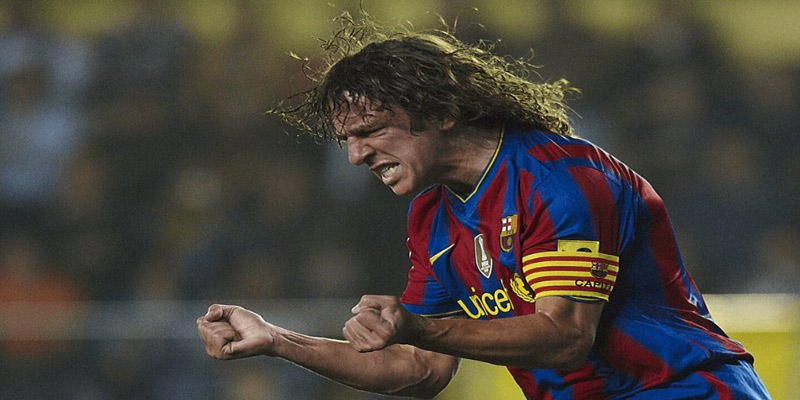Carles Puyol is more than just a football legend; he represents commitment, leadership, and skill that continue to inspire athletes worldwide. As a key defender for FC Barcelona and the Spanish national team, Puyol’s legacy is defined by resilience, teamwork, and passion. His contributions to football, both on and off the pitch, have forever shaped the sport. Discover how Puyol’s influence extends beyond football, as we explore his extraordinary career. For fans seeking more, visit hello88 for exclusive content on football legends.
Introduction to Carles Puyol
Carles Puyol, born on April 13, 1978, in La Pobla de Segur, Catalonia, Spain, emerged as one of the most iconic defenders in football history. Renowned for his fierce tackles, unwavering determination, and exceptional leadership abilities, Puyol was a cornerstone of the famous FC Barcelona team that dominated European football for over a decade.
Football isn’t just a game for Puyol; it’s been his lifelong passion. With humble beginnings, he rose through the ranks, eventually becoming a household name, symbolizing what it means to give everything for your team. His story epitomizes the essence of perseverance and commitment.
Early life and career beginnings of Puyol
Carles Puyol grew up in a small town in the Catalonian Pyrenees, where his love for football began at an early age. Unlike many elite players, Puyol’s journey didn’t start at a prestigious academy. Instead, he played for local clubs before catching the attention of scouts from FC Barcelona.
Despite facing numerous challenges, including being overlooked for his height and build, Puyol’s tenacity shone through. He joined Barcelona’s youth academy, La Masia, at 17, where he honed his skills and developed his understanding of the game. It was here that Puyol learned the importance of discipline, teamwork, and strategy, which would later become pivotal in his professional career.
His first professional appearances came when he started playing as a right-back for Barcelona B. However, it wasn’t long before his coaches recognized his potential as a central defender, a position he would ultimately make his own. Puyol made his debut for the first team in 1999, marking the beginning of a legendary career that would redefine defensive play.
Key milestones in his football career
Throughout his illustrious career, Carles Puyol achieved several significant milestones that highlighted not only his talent but also his unwavering commitment to his club and country. Puyol’s rise to fame was marked by his prominent role in Barcelona during one of its most successful eras.
He became the team captain in 2004, leading by example both on and off the pitch. Under his leadership, Barcelona secured numerous domestic and international titles, including UEFA Champions League trophies and La Liga championships. Puyol’s tactical awareness, combined with his physical prowess, made him an integral part of the team’s defensive structure.
Moreover, Carles Puyol’s leadership qualities were evident during crucial matches, where he often stepped up in critical moments. His ability to inspire his teammates, combined with his fighting spirit, made him a true icon of the game. Puyol’s most memorable moments include his legendary header against Arsenal in the 2006 Champions League final and the triumphant victory in the 2010 FIFA World Cup with Spain.
Puyol’s role in Spain’s national team and Barcelona
Carles Puyol‘s influence extended beyond club football into international competitions. As a pivotal player for the Spanish national team, he contributed to Spain’s historic victories, including their first-ever World Cup win in 2010 and the back-to-back European Championships in 2008 and 2012.
Puyol’s defensive skills complemented the attacking prowess of players such as Xavi Hernandez and Andrés Iniesta. His fearless style of play allowed Spain to execute their famous possession-based football effectively. His performance in the 2010 World Cup semi-final against Germany, where he scored the winning goal with a magnificent header, remains one of the highlights of his national career.
At Barcelona, Puyol was more than just a defender; he was a leader who embodied the club’s values. His passion for the game resonated with fans and teammates alike, making him a beloved figure in the world of football. Through his tenacious defending, relentless work ethic, and charismatic leadership, Carles Puyol forged a legacy that is celebrated to this day.
